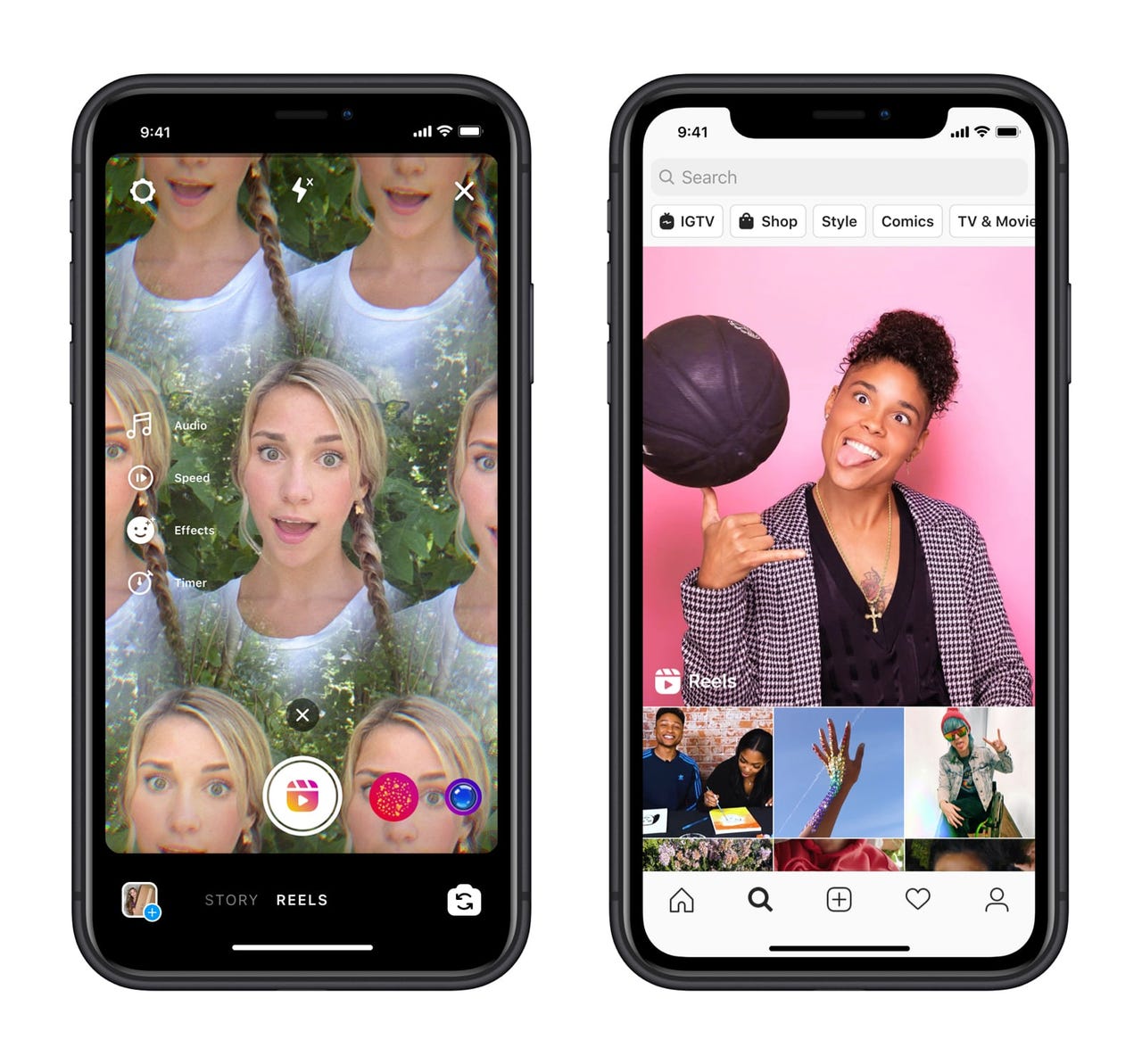Facebook goes in for a face lift


Facebook launched Reels on Instagram in August 2020 to better compete with TikTok.
Social Media
Facebook is undertaking a years-long effort to make its platforms more appealing to young adults, CEO Mark Zuckerberg said on Monday, "rather than optimizing for the larger number of older people" that use Facebook products.
"Like everything, this will involve trade-offs in our products, and it will likely mean that the rest of our community will grow more slowly than it otherwise would have," Zuckerberg said during a conference call following the release of its third-quarter financial results. "But it should also mean that our services become stronger for young adults. This shift will take years, not months, to fully execute, and I think it's the right approach to building our community and company for the long term."
While Facebook's global footprint is already massive, the number of people using its family of services continued to grow in Q3 2021. The number of people active monthly on at least one of Facebook's products -- including Facebook, Instagram, Messenger and WhatsApp -- was 3.58 billion as of September, an increase of 12% year-over-year.
Even so, Zuckerberg said, "competition has also gotten a lot more intense, especially with Apple's iMessage growing in popularity and, more recently, the rise of TikTok, which is one of the most effective competitors that we have ever faced."
On Monday's call, Facebook executives declined to give any more details about young adults or teens on its platforms. However, their commentary followed reports of internal documents warning that the "ageing up issue is real." As the Verge reported, the documents showed that teen use of the Facebook app has been declined in the US by 13% since 2019. It's projected to drop 45% over the next two years. Meanwhile, young adults between the ages of 20 and 30 were expected to fall by 4% during that time frame.
On Monday's call, Zuckerberg noted that Facebook has lately catered to its overall audience at the expense of its younger users.
"Over the last decade, as the audience that uses our apps has expanded so much and we focused on serving everyone, our services have gotten dialed to be the best for the most people who use them rather than specifically for young adults," he said.
To attract younger users, Facebook is currently focusing on expanding its Reels product. The feature is similar to TikTok -- it lets users create short videos with music, filters or effects. The videos can be shared with friends or discovered by other users browsing the app. Since launching Reels on Instagram in August 2020, Facebook has rolled it out in more than 100 countries, CFO Dave Wehner said Monday.
"We're continuing to invest in that experience and make ongoing product enhancements," he said.
Zuckerberg added, "I am optimistic that Reels will be as important for our product as Stories is. We also expect to make significant changes to Instagram and Facebook in the next year to further lean into video and make Reels a more central part of the experience."
The internal documents revealing Facebook's declining popularity among teens were part of a trove of documents that whistleblower Frances Haugen has provided to the press. After cooperatively sorting through thousands of documents, a group of news outlets published stories revealing, among other things, that the company was unprepared to handle content fomenting the Jan. 6 insurrection attempt and that its content moderation policies are markedly different in different parts of the world. The headlines also zeroed in on Zuckerberg's pointedly political decisions that prioritized growth over the public interest, such as censoring anti-government posts in Vietnam and opting against publishing Spanish-language voting information.
On Monday's call, Zuckerberg took a defiant tone in response to the reports.
"My view is that what we are seeing is a coordinated effort to selectively use these documents to paint a false picture of our company," he said. "The reality is that we have an open culture where we encourage discussion and research about our work so we can make progress on many complex issues that are not specific to just us."